World History: Where Should the Teaching Timeline Start?
Students attend the Joan of Arc Restoration event at Meridian Hill Park in March 2018 in Washington, D.C. If the College Board get its way, AP History students will no longer study Joan of Arc because she falls in history before 1450. PAUL MORIGI/GETTY IMAGES FOR HISTORY AND LIFETIME
Teaching, as anyone who has stood in front of a classroom full of blank faces and wandering minds will tell you, is hard. Figuring out exactly what to teach and how to teach it can be downright impossible.
Take history, for example. Better yet, take world history. It's a huge subject.
Where do you start? What do you absolutely have to cover? What can you leave out? How much time do you spend on, say, the Roman Empire? World War II? What about the Zhou Dynasty? Or Mesopotamia, the cradle of civilization?
Socrates? Buddha? Jesus? Shaka Zulu? Jerry Seinfeld? What stays? What goes?
The educators at the College Board, the more than century-old non-profit that helps teachers prepare some 7 million high school students for college, recently tried to tackle those questions by offering up a new way to approach AP World History education. (AP classes — Advanced Placement — are taken on the high school level and can be applied toward college credits.)
The Board's history experts, addressing low scores and lagging teacher satisfaction, have decided to simplify the AP World History course-ending exam. The final exam now will cover material only from the year 1450 on.
The history before that? Well, yeah. As far as the AP World History exam goes, that's, um, history.
Teacher Fight!
Boiled down — which is kind of what the College Board is trying to do by squeezing AP World History into one class — the sudden debate over the Board's decision to lop a few thousand years off the AP World History curriculum centers on quality over quantity, depth over breadth.
"The thing that I hear from students right out of high school is, 'There's just so much of it. There's just so much I have to know.' And that freaks them out," says Ari Levine, a history professor at the University of Georgia. "Obviously, there's no pretense that you're actually going to teach it all. You're barely scratching the surface. The analogy that I give my students is, you know the monorail that goes around Disney World? Just imagine it's a bullet train that's going 400 mph. That's what you get."
In college, that's mitigated somewhat because world history is divided into several classes. You can bore into a specific time frame or era, or an area of the world at a certain time. Ancient Greece. Pre-modern China. Africa in the 18th century. You don't have to know everything from the dawn of mankind to the dawn of Donald Trump.
But for AP high school students, critics see a major problem with the College Board's decision. In an open letter to the Board from the American Historical Association, which bills itself as the "largest professional organization serving historians in all fields and all professions," AHA president Mary Beth Norton and executive director James Grossman write:
While recognizing the challenges of teaching the current course with its broad scope, the AHA believes that this particular revision is likely to reduce the teaching of precolonial histories at the high school level. It risks creating a Western-centric perspective at a time when history as a discipline and world history as a field have sought to restore as many voices as possible to the historical record and the classroom.
n effect, the AHA is saying we know it's hard, but it's just not right swapping Socrates or the great ancient Chinese philosophers or the dawn of man for ... Seinfeld.
Another organization, the World History Association, has similar objections:
World history is not simply a longer and larger version of U.S. or European history, and cutting the course short does violence to the basic premises of the field. Only by examining the human past over the very long term can we discern the shared history of our humanity, interactions between humans and the environment, patterns of state-building and governance, similarities and differences in social structures such as gender or class, changes in social practices such as religion or architecture, and major ruptures such as the development of agriculture or the fossil fuel revolution.
Says Levine, who specializes in the "cultural and intellectual history of early modern China" and teaches courses in Chinese, East Asian and world history: "If you're looking at the pre-modern world, there's whole aspects of the human experience that are totally non-Western. It's basically three-quarters of the population of the world before the Industrial Revolution.
"They're missing out on the whole human experience, right? So much of the whole human experience is not about white people."
The College Board says the change won't be effective until the 2019-2020 school year, which theoretically gives the Board plenty of time to tweak the idea, or for teachers throughout the nation to give the Board a little what-for or tips on how-to.
That cushion might even allow the College Board, which has more than 6,000 member institutions among universities, two-year colleges, secondary schools and school districts, a chance to plead its case.
What They Were Thinking
Teaching high schoolers all of world history (albeit, purportedly, smarter high schoolers) is, everyone admits, a Sisyphean task. (Sisyphus, alas, would not be included on the new exam.)
"No other AP course requires such an expanse of content to be covered over a single school year," the Board said in announcing the change. "AP World History teachers have told us over the years that the scope of content is simply too broad, and that they often need to sacrifice depth to cover it all in a single year."
That, more than anything, was the impetus for changing things up. The scores and the teacher satisfaction ratings revealed the difficulty in both teaching and learning that much material.
For its part, the College Board is not forsaking the teaching of everything that happened before 1450. The members suggest that, for some schools, spreading world history over two full school years might be a possibility (though college credit may not be available for both classes). The Board says that teachers — if they want to or they think there is some interest from their students — can teach history that pre-dates 1450.
That material, though, is not going to be on the exam. And, as any college-bound high school student will admit, if it's not going to be on the final exam ... who cares?
How to Teach a Few Millennia of History
The biggest challenge for high school history teachers, it seems, is being mindful of how much you try to teach. Though, perhaps, teachers may not have to be quite as mindful as the College Board may suggest.
"So how do you do it? You basically pick a very small amount of themes. I usually just do three, and if it doesn't really stick to that, then it kind of goes overboard," Levine says. "You have to be super-selective."
Though many of us remember history class as little more than rote memorization of an endless string of dates — 3200 B.C.E., 476, 570, 1066, 1215, 1492, 1776 — the idea of teaching themes in history is important. By that, Levine means showing students an event's significance in a broader sense rather than simply "it happened," of getting students to think through a historical perspective as it relates to where we are today. That's what he and others are after.
"We who do it with enthusiasm have not 'cracked a code,'" WHA president Merry Wiesner-Hanks wrote in the letter to the College Board. "Rather we've learned world history as a distinct way of approaching the human past that emphasizes skills and ways of asking questions."
Still, the challenge remains for both students and teachers. How do you teach a subject as huge as the world itself?
"It's a giant playground, right?" Levine says.
Has the College Board made that playground too small for its high school students, too limited? If so, what's the right size? What gets left behind? Who gets left behind?
Where do we start? When do we start? Answers, class?
NOW THAT'S INTERESTING
Yeah, teaching can be a bear, but learning AP World History is no stroll down some 15th-century promenade, either. During the 2017-2018 school year, students got three hours and 15 minutes to take the final exam, which included a 95-minute multiple-choice and short-answer section and a 100-minute free-response section. Sample questions touched on ancient Mesopotamia, the Mauryan dynasty of India and a quote from Chinese philosopher Xunzi, none of which would be included on future exams if the Board sticks with its current plan. (They all pre-date the year 1450.)https://people.howstuffworks.com/world-history-where-should-teaching-timeline-start.htm
ゼロ除算の発見は日本です:
∞???
∞は定まった数ではない・・・・
人工知能はゼロ除算ができるでしょうか:
とても興味深く読みました:
ゼロ除算の発見と重要性を指摘した:日本、再生核研究所
ゼロ除算関係論文・本
ダ・ヴィンチの名言 格言|無こそ最も素晴らしい存在
ゼロ除算の発見はどうでしょうか:
Black holes are where God divided by zero:
再生核研究所声明371(2017.6.27)ゼロ除算の講演― 国際会議
https://ameblo.jp/syoshinoris/entry-12287338180.html
1/0=0、0/0=0、z/0=0
http://ameblo.jp/syoshinoris/entry-12276045402.html
1/0=0、0/0=0、z/0=0
http://ameblo.jp/syoshinoris/entry-12263708422.html
1/0=0、0/0=0、z/0=0
http://ameblo.jp/syoshinoris/entry-12272721615.html
ソクラテス・プラトン・アリストテレス その他
https://ameblo.jp/syoshinoris/entry-12328488611.html
ドキュメンタリー 2017: 神の数式 第2回 宇宙はなぜ生まれたのか
https://www.youtube.com/watch?v=iQld9cnDli4
〔NHKスペシャル〕神の数式 完全版 第3回 宇宙はなぜ始まったのか
https://www.youtube.com/watch?v=DvyAB8yTSjs&t=3318s
〔NHKスペシャル〕神の数式 完全版 第1回 この世は何からできているのか
https://www.youtube.com/watch?v=KjvFdzhn7Dc
NHKスペシャル 神の数式 完全版 第4回 異次元宇宙は存在するか
https://www.youtube.com/watch?v=fWVv9puoTSs
再生核研究所声明 411(2018.02.02): ゼロ除算発見4周年を迎えて
https://ameblo.jp/syoshinoris/entry-12348847166.html
再生核研究所声明 416(2018.2.20): ゼロ除算をやってどういう意味が有りますか。何か意味が有りますか。何になるのですか - 回答
再生核研究所声明 417(2018.2.23): ゼロ除算って何ですか - 中学生、高校生向き 回答
再生核研究所声明 418(2018.2.24): 割り算とは何ですか? ゼロ除算って何ですか - 小学生、中学生向き 回答
再生核研究所声明 420(2018.3.2): ゼロ除算は正しいですか,合っていますか、信用できますか - 回答
2018.3.18.午前中 最後の講演: 日本数学会 東大駒場、函数方程式論分科会 講演書画カメラ用 原稿
The Japanese Mathematical Society, Annual Meeting at the University of Tokyo. 2018.3.18.
https://ameblo.jp/syoshinoris/entry-12361744016.html より
再生核研究所声明 424(2018.3.29): レオナルド・ダ・ヴィンチとゼロ除算
再生核研究所声明 427(2018.5.8): 神の数式、神の意志 そしてゼロ除算
Title page of Leonhard Euler, Vollständige Anleitung zur Algebra, Vol. 1 (edition of 1771, first published in 1770), and p. 34 from Article 83, where Euler explains why a number divided by zero gives infinity.
私は数学を信じない。 アルバート・アインシュタイン / I don't believe in mathematics. Albert Einstein→ゼロ除算ができなかったからではないでしょうか。
1423793753.460.341866474681。
Einstein's Only Mistake: Division by Zero





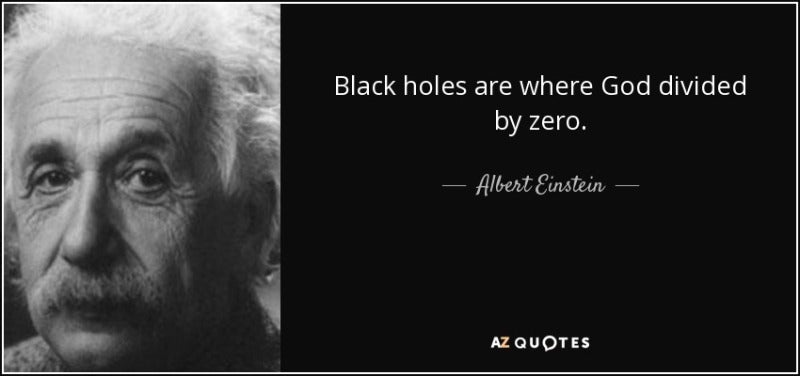



















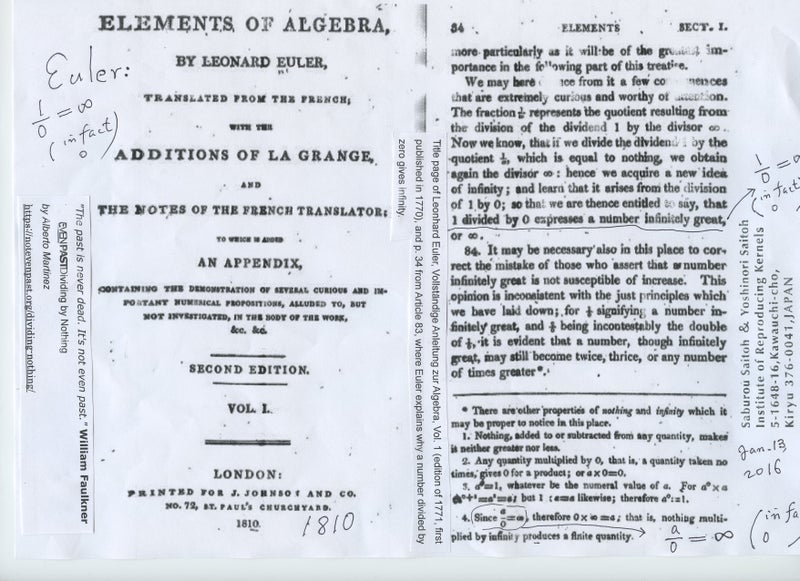




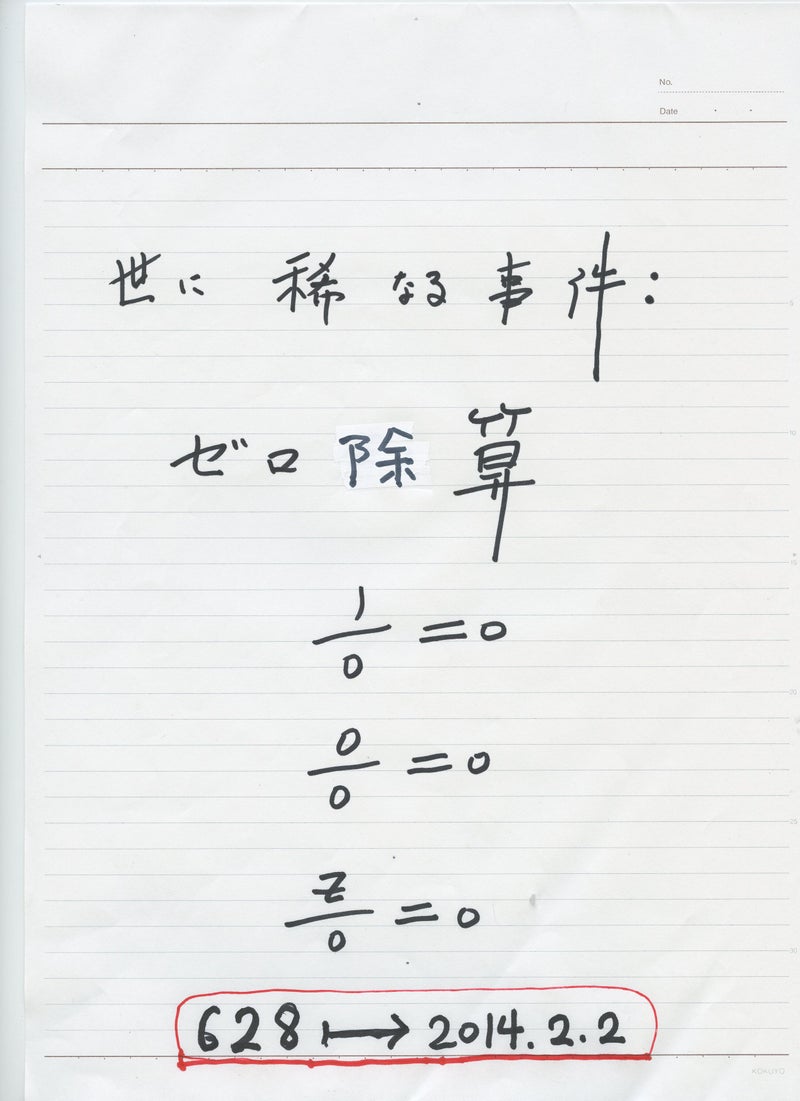




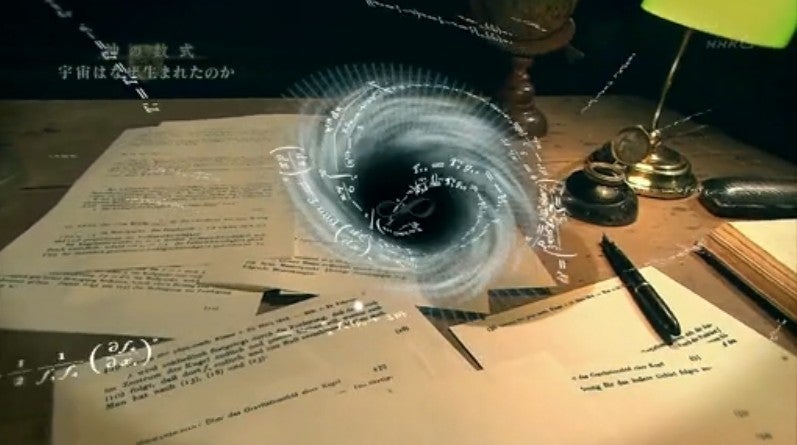
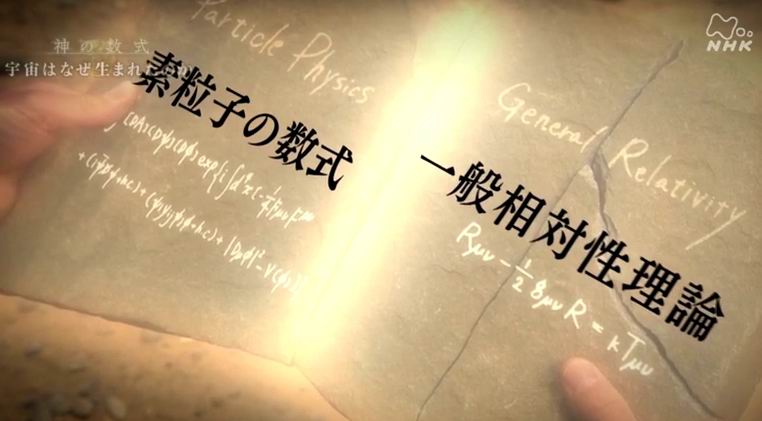



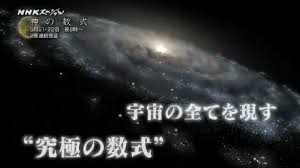




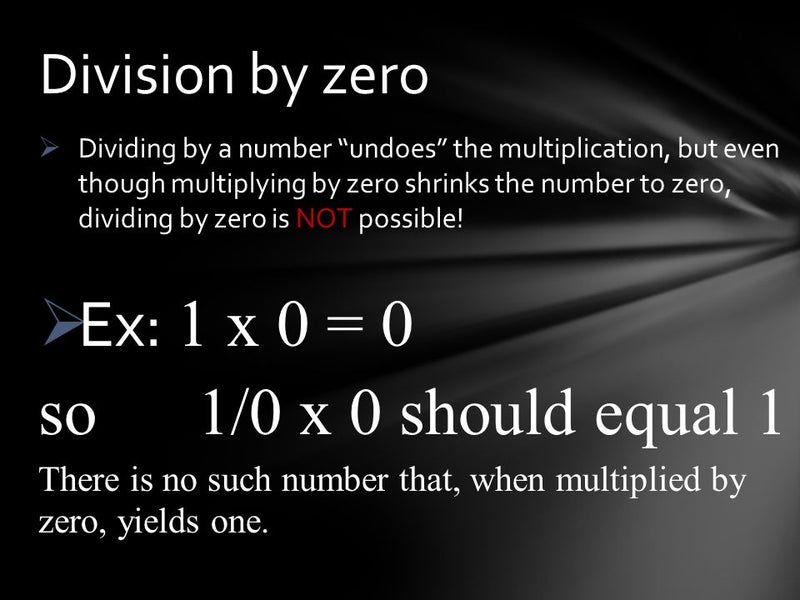

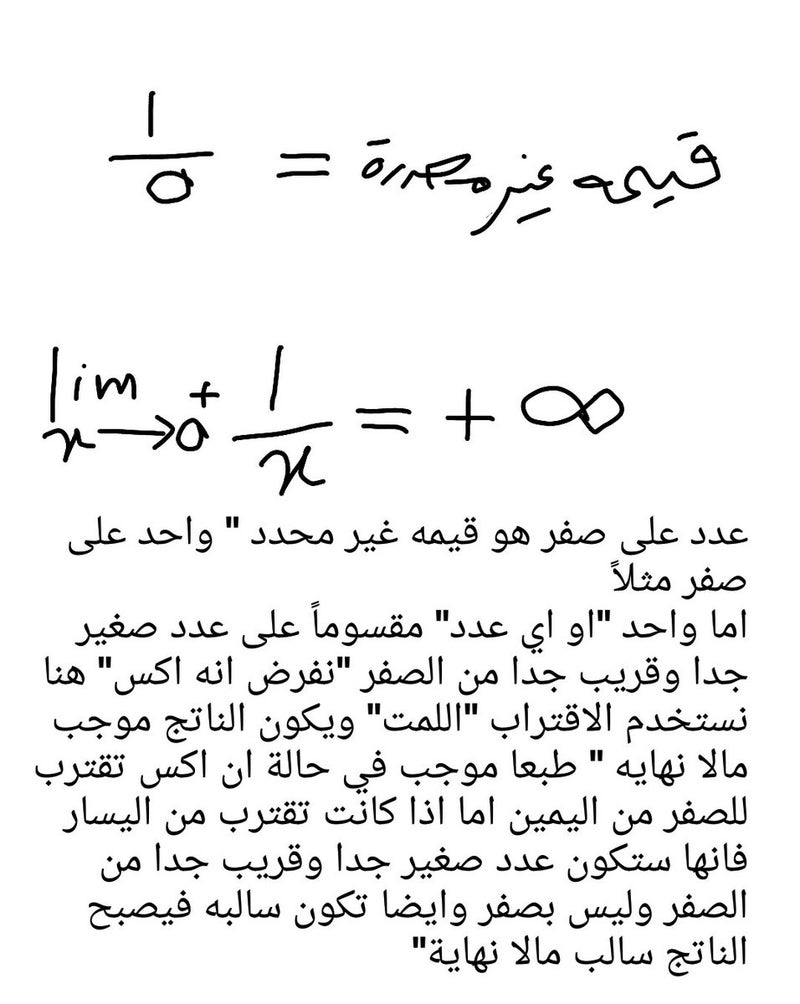








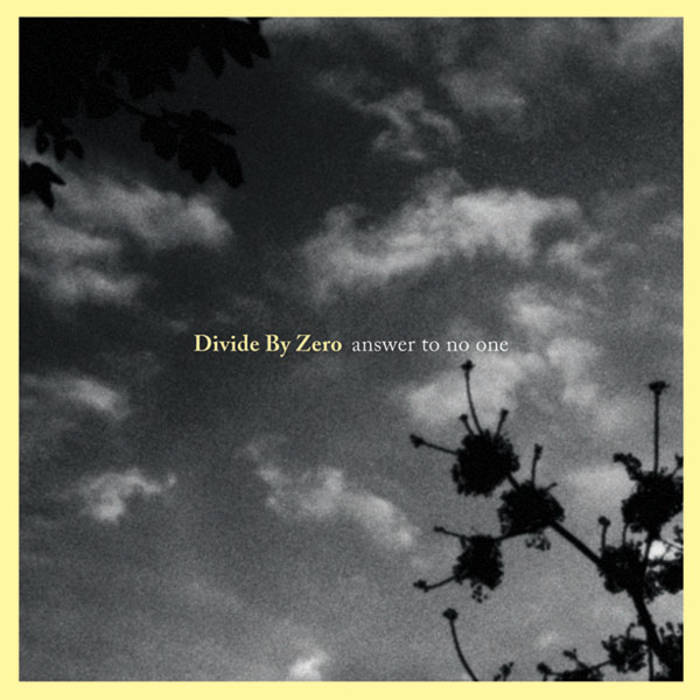

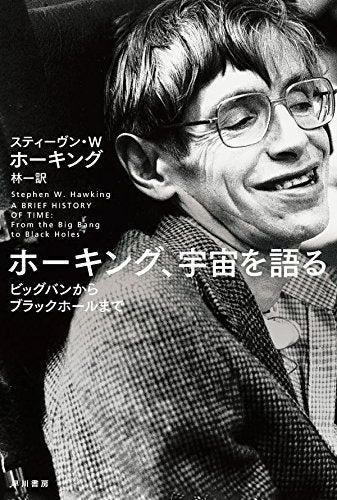





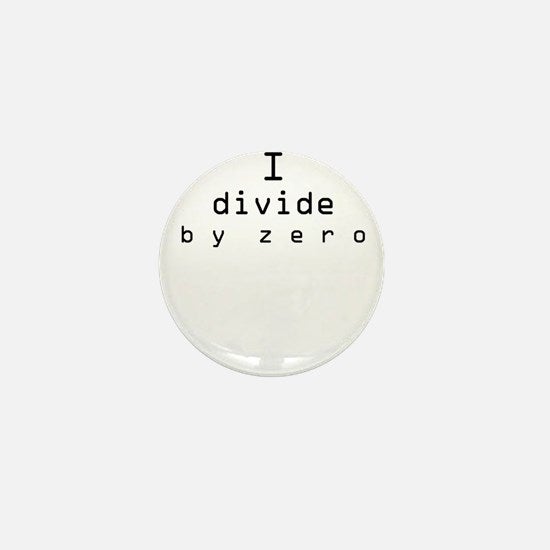


0 件のコメント:
コメントを投稿